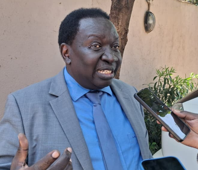The Government of South Sudan has begun developing a national carbon markets framework to regulate the trading of carbon credits and to protect communities from exploitation.
The initiative was announced at the opening of a three-day stakeholder consultation workshop in Juba, co-organized with the United Nations Development Programme (UNDP).
Joseph Africano Bartel, Undersecretary for Environment and Forestry, said the country holds vast potential in forests, wetlands, and grasslands that absorb greenhouse gases but must avoid rushing into poorly structured agreements.
“Several brokers have come to us promising billions of dollars if we sign quickly,” he disclosed. “But we cannot mortgage our carbon credits without knowing exactly what volumes we have and what the real price should be; otherwise, our people will be left with peanuts.”
The official stressed that revenues from carbon trading must be directed to climate change adaptation and environmental protection, not general spending.
He also warned that without safeguards, powerful emitters like the U.S. or China could dictate prices as low as “five or ten cents per ton,” undermining South Sudan’s economic potential.
UNDP Deputy Resident Representative Sheila Ngatia said the framework is important for South Sudan’s climate action journey, linking it to the country’s commitments under the Paris Agreement, particularly Article 6, which allows countries to trade carbon credits internationally.
“South Sudan’s vulnerability to climate change is well documented from rising temperatures and unpredictable rainfall to recurring floods that threaten food security and livelihoods,” she said. “Yet the country also holds immense potential in utilizing its natural carbon sinks to reduce emissions and build resilience.”
She added that the framework must be inclusive, transparent, and ambitious.
“Strong frameworks are built not in silos, but through collaboration and inclusion,” Ngatia stressed. “This workshop gives government, civil society, private sector, and development partners the platform to shape a framework that can mobilize climate finance, create jobs, reduce poverty, and protect ecosystems.”
The draft framework, which is being developed with UNDP support, will guide how South Sudan generates, prices, and trades carbon credits. It also seeks to attract private sector investment in climate-friendly development, including initiatives such as debt-for-nature swaps, fuel-efficient stoves, and green bonds.
Africano underscored that the final framework will be submitted to the Council of Ministers and Parliament later this year for approval.
“With this framework, we who have the credits should decide the price,” he said. “We must be transparent, accountable, and ensure that benefits reach our people.”




